A hybrid cloud management platform is a tool or set of tools designed to help organizations effectively manage and control their hybrid cloud environments. A hybrid cloud environment typically consists of a combination of public cloud, private cloud, and on-premises infrastructure. With the increasing complexity of these environments, organizations need a centralized platform to oversee and optimize their resources, applications, and data across different clouds.

- Unified management interface: A hybrid cloud management platform provides a single pane of glass for managing resources across multiple cloud environments. This includes monitoring, provisioning, and scaling resources as needed. This unified interface simplifies the management process and allows organizations to efficiently manage their hybrid cloud infrastructure.
- Resource optimization: The platform helps organizations optimize resources across their hybrid cloud environments. This includes identifying underutilized resources, right-sizing instances, and automating resource allocation to ensure cost-effectiveness and performance efficiency. By optimizing resources, organizations can reduce costs and improve overall productivity.
- Security and compliance management: Security is a top concern for organizations operating in hybrid cloud environments. A hybrid cloud management platform provides tools for managing security policies, access controls, encryption, and compliance requirements across different clouds. This helps organizations maintain a secure and compliant environment while leveraging the benefits of hybrid cloud technology.
- Automation and orchestration: Automation is a key component of hybrid cloud management platforms. These platforms enable organizations to automate repetitive tasks, such as provisioning and scaling resources, to improve efficiency and reduce human error. Orchestration capabilities allow organizations to automate workflows and processes across different cloud environments, streamlining operations and improving agility.
- Monitoring and analytics: A hybrid cloud management platform provides real-time monitoring and analytics capabilities to track the performance, availability, and cost of resources across different clouds. This helps organizations identify issues proactively, optimize performance, and make data-driven decisions to improve their hybrid cloud environment.
- Multi-cloud support: Many organizations operate in a multi-cloud environment, using multiple public cloud providers and on-premises infrastructure. A hybrid cloud management platform should support integration with various cloud providers to enable seamless operations across different clouds. This flexibility allows organizations to leverage the strengths of different clouds while mitigating vendor lock-in.
- Self-service portal: A self-service portal enables users to provision resources, manage workloads, and access services within the hybrid cloud environment. This empowers users to independently deploy and manage resources without the need for IT intervention, improving agility and accelerating innovation.
A hybrid cloud management platform provides organizations with the tools and capabilities needed to effectively manage and optimize their hybrid cloud environments. By centralizing management, automating tasks, ensuring security and compliance, and providing monitoring and analytics capabilities, these platforms help organizations maximize the benefits of hybrid cloud technology while mitigating complexity and risks. As organizations continue to adopt hybrid cloud strategies, a robust hybrid cloud management platform becomes essential for success in the digital era.
Discover the top 11 best hybrid cloud management platforms
INTERCITY.TECHNOLOGY
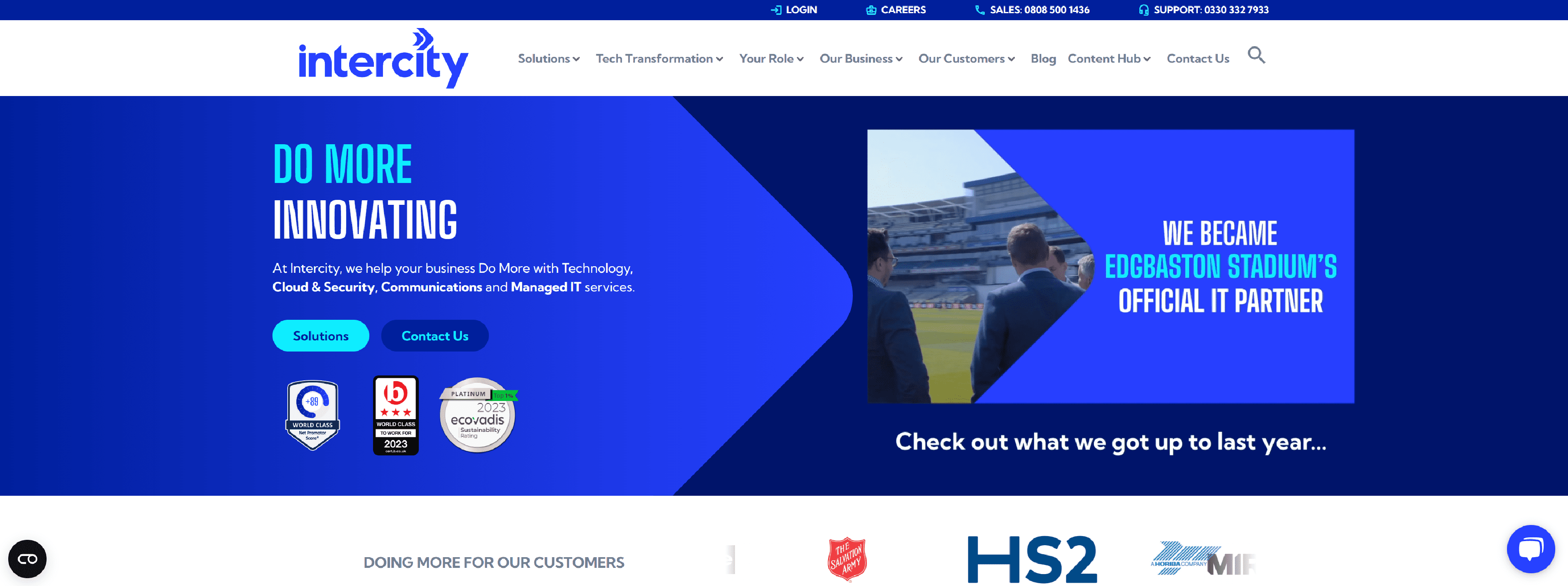
Intercity’s Cloud Management Platform is a single dashboard to manage your entire cloud and on-premises estates including the creation, scaling and deleting VMs.
- Report on inventory, cloud usage, provisioning and costs
- Analyse costing, utilisation and workloads
- Create and manage hypervisors, Docker hosts, VMs, and containers
- Generate a list of backup activities, jobs and integrations
- Create VM images from scratch and move VM images between hypervisors
- Perform system health checks, type-specific checks and incident reporting
- See trends, activity timelines and log files in one dashboard
- Apply filters based on search, interval and level
MICROFOCUS
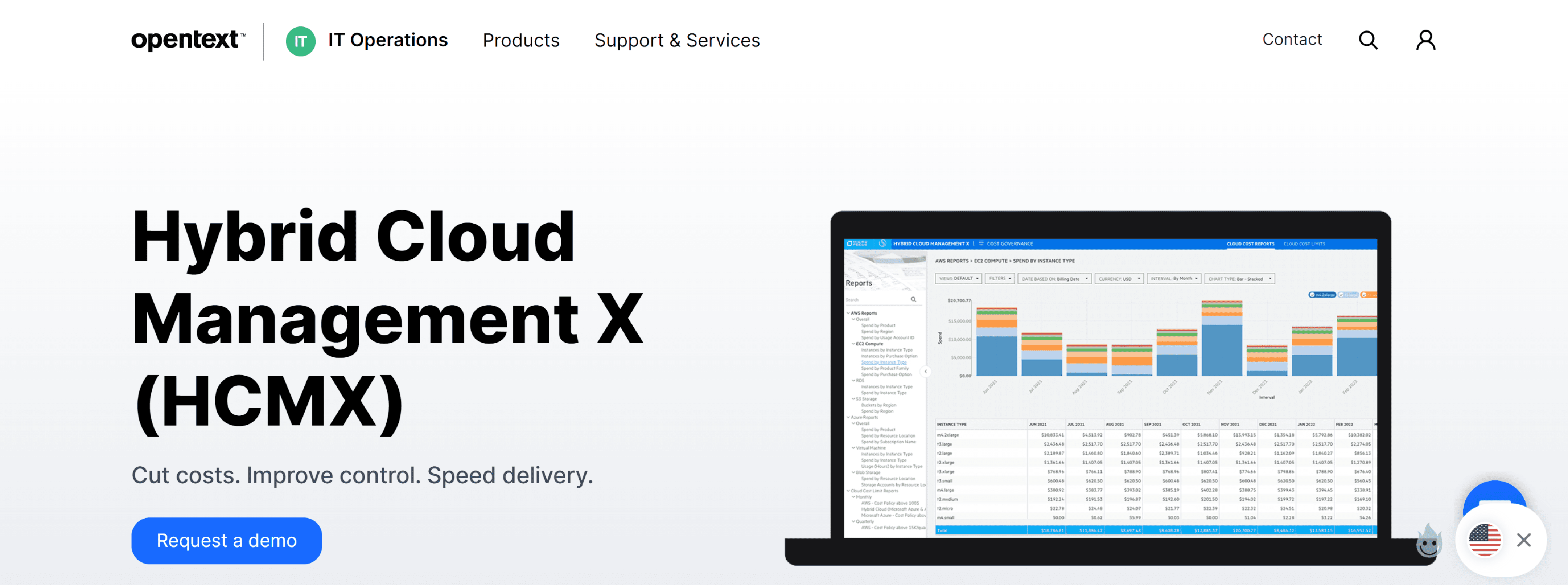
Hybrid Cloud Management X software helps you design, deploy and manage IT infrastructure and services across clouds, containers, VMs, and data centers.
- Stop the waste–gain spend insights and stay on budget
- Reduce risk. Solidify IT control. Govern all clouds.
- Deliver apps and infrastructure faster
NUTANIX
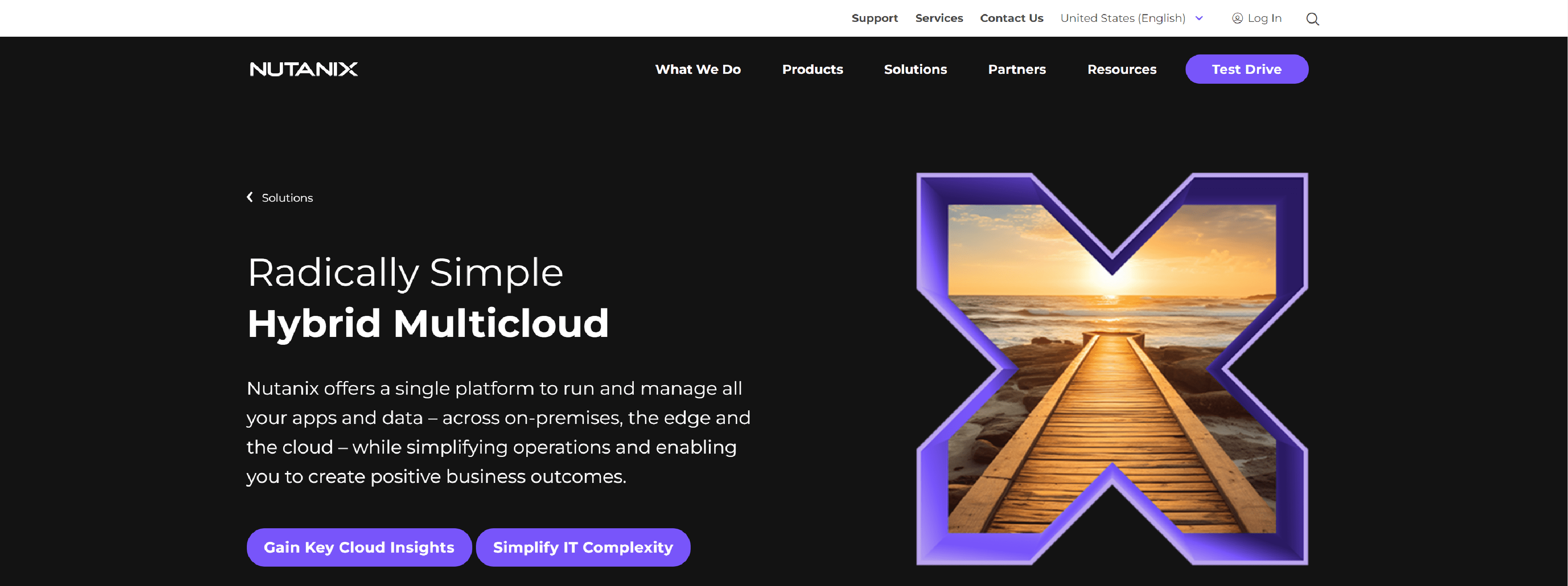
Nutanix – Get the flexibility, simplicity, and cost efficiency you need to manage business applications more easily and effectively across clouds with hybrid multicloud.
- Accelerate Your Digital Transformation
- Lower TCO
- Manage a Unified Platform
- Gain Workload Portability
SNOWSOFTWARE
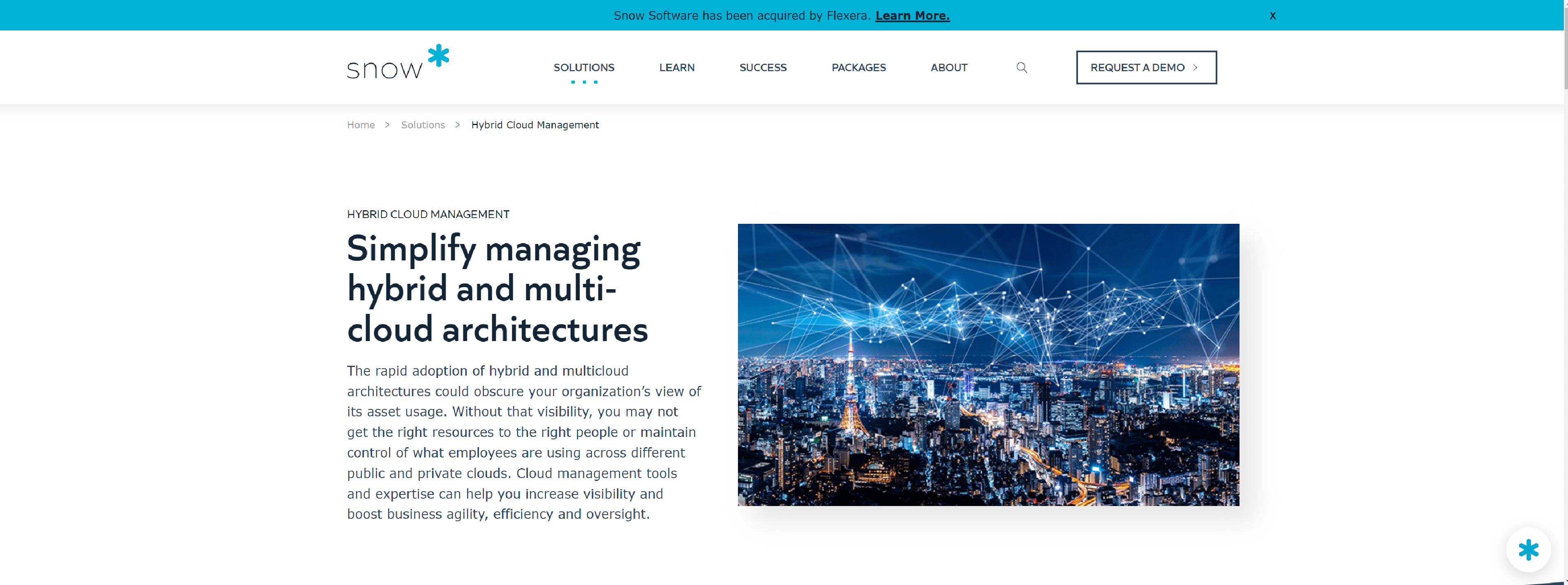
Snow Software is the only unified cloud-native platform delivering actionable insights on your IT environment.
- Fully automated cloud service delivery
- Seamless integration with new and existing technology
- Single pane of glass visibility
MORPHEUSDATA
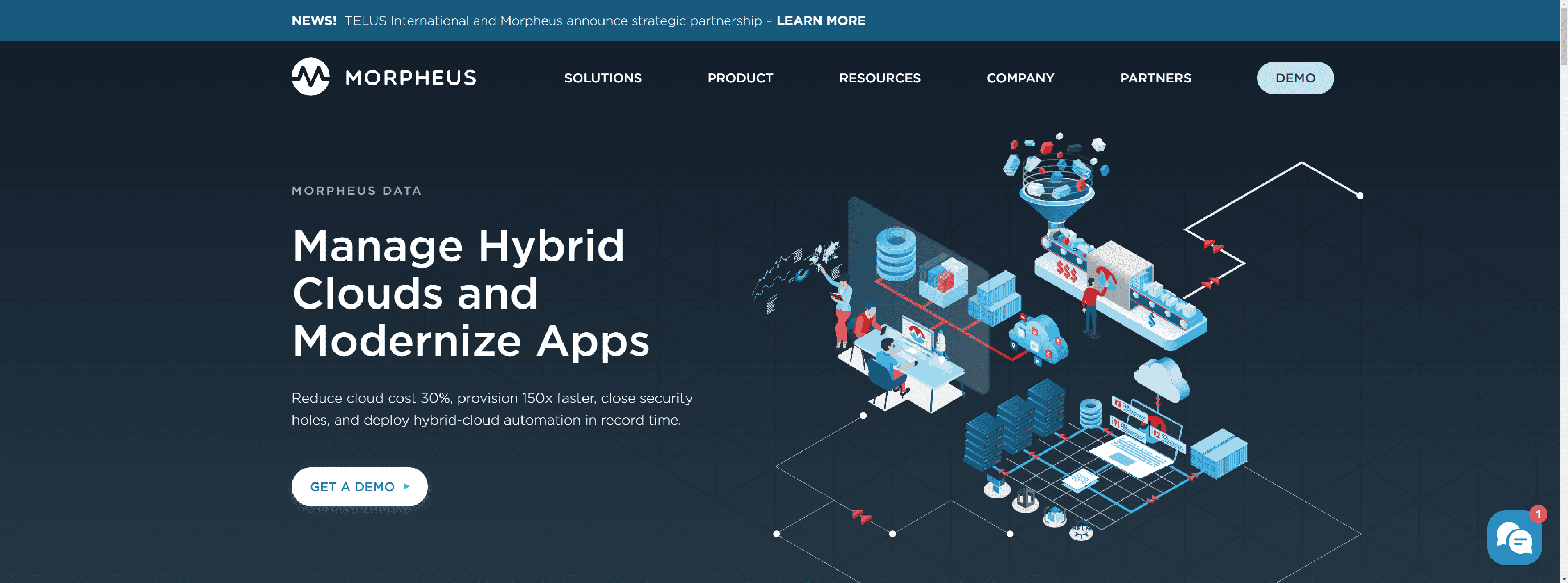
Morpheus Data is a next-generation hybrid cloud management and application infrastructure automation engine.
- Create private clouds, manage public clouds, and consolidate Kubernetes deployment
- Provision applications from an on-demand catalog, API/CLI, ITSM, or infrastructure-as-code
- Simplify authentication, establish access controls, set policies, and manage security posture
- Automate lifecycles from cradle to grave, run workflows, and simplify day-2 actions
- Inventory brownfields, rightsize resources, track cloud spend, and centralize visibility
REDWOOD
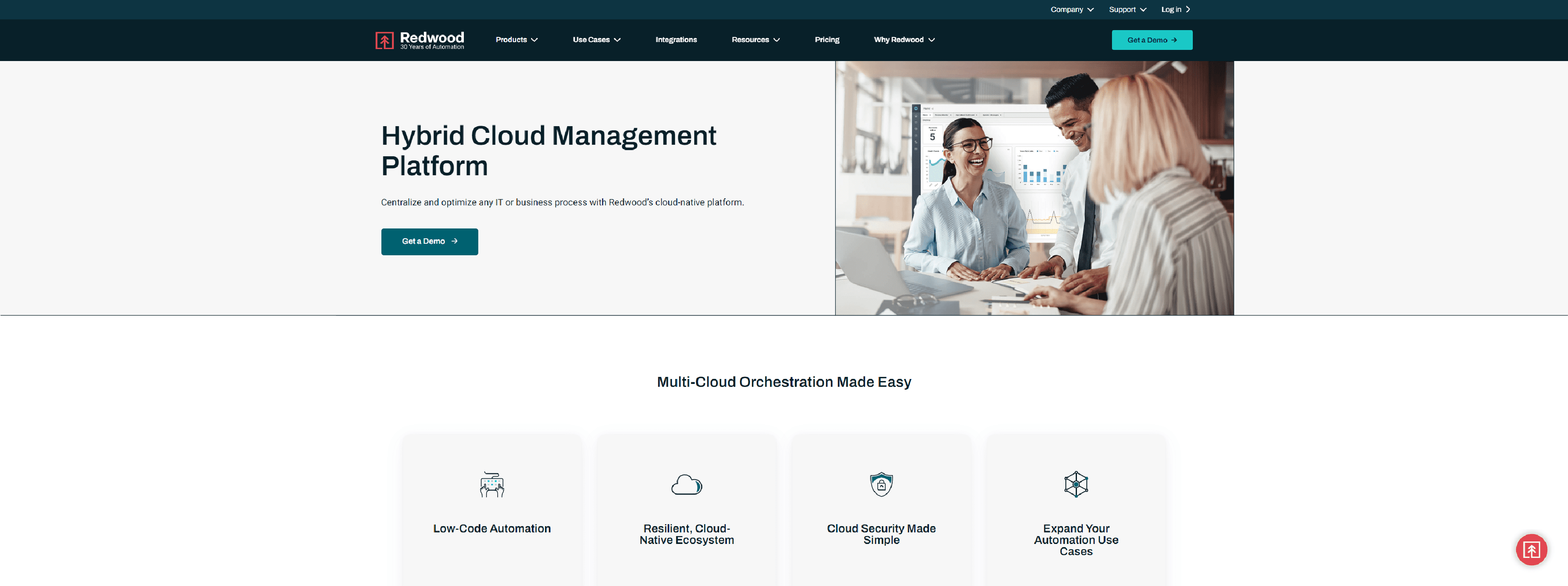
Centralize and optimize any IT or business process with Redwood’s cloud-native platform.
- Low-Code Automation
- Resilient, Cloud-Native Ecosystem
- Cloud Security Made Simple
- Expand Your Automation Use Cases
USU

USU Solutions – The cloud management platform for consolidated management of your hybrid cloud infrastructure. Optimize resources & reduce costs now.
- Create transparency
- Reduce costs
- Leverage trending
- Increase availability
- Check Compliance
- Improve cloud governance
FLEXERA
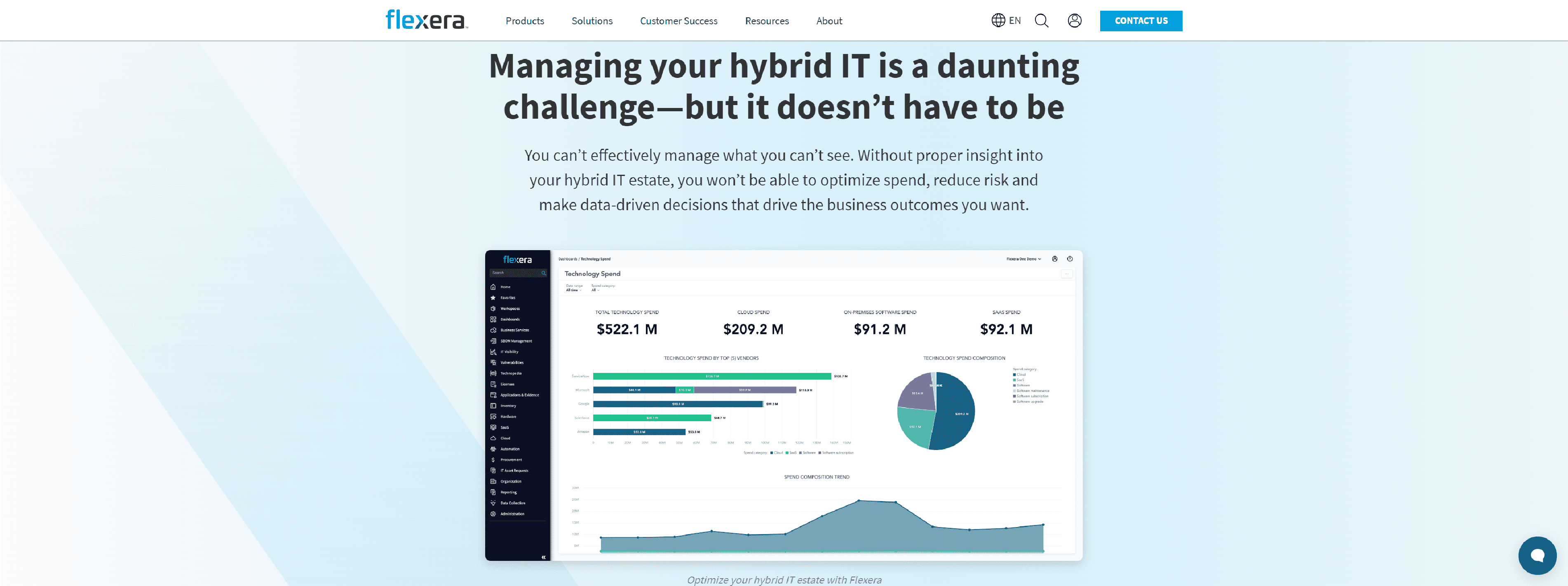
Flexera’s Cloud Management Platform provides a rich set of capabilities for discovery, orchestration and governance, and cost optimization across multiple public and private clouds.
- Full visibility into any cloud workload
- Standardize architectures with multi-cloud templates
- Orchestrate ongoing operations
- Govern cloud use with automated policies
ROCKETSOFTWARE
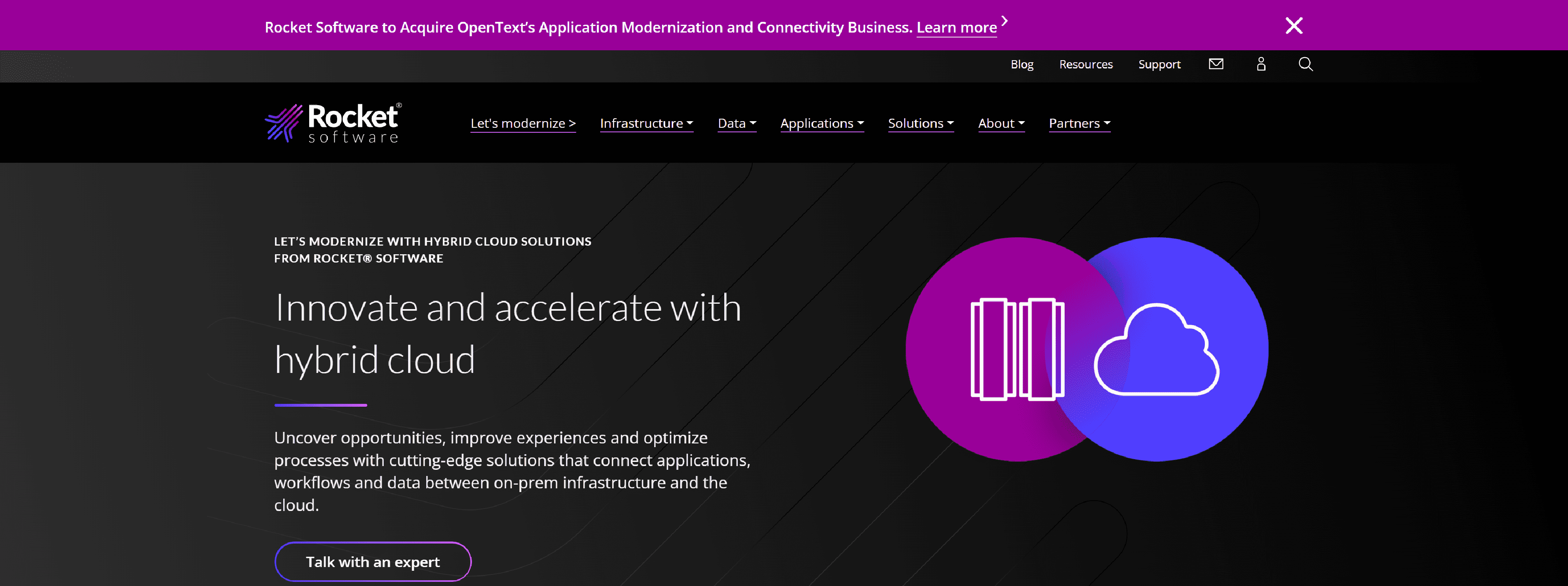
Rocket Software provides hybrid cloud data integration solutions to discover, query, replicate, sync, and store mainframe and other data to drive digital transformation.
- Paving the way, pushing boundaries
- Reach your goals, your way
- Mainframe and midrange masters. Cloud champions
- Agile, by design
OPTI9TECH
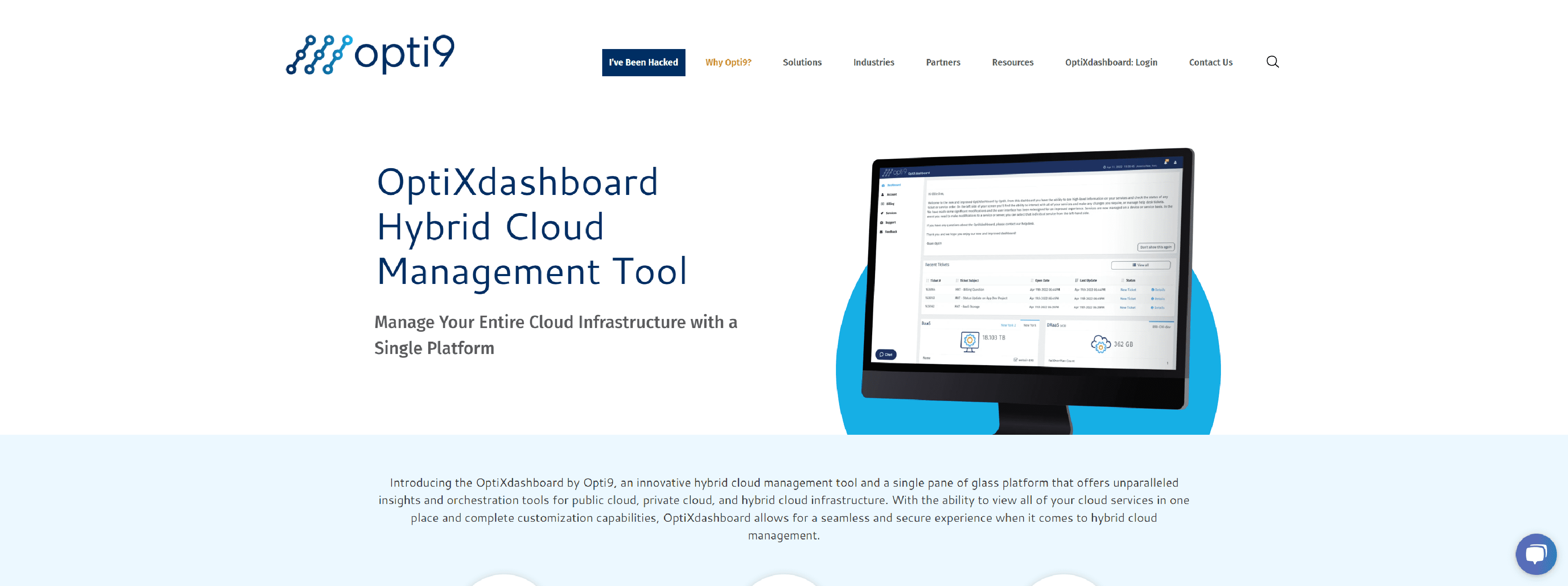
OptiXdashboard by Opti9, an innovative hybrid cloud management tool and a single pane of glass platform that offers unparalleled insights and orchestration tools for public cloud, private cloud, and hybrid cloud infrastructure.
- Unparalleled Insights & Features
- Customized User Access & Security
- Unmatched Visibility & Control
HITACHIVANTARA
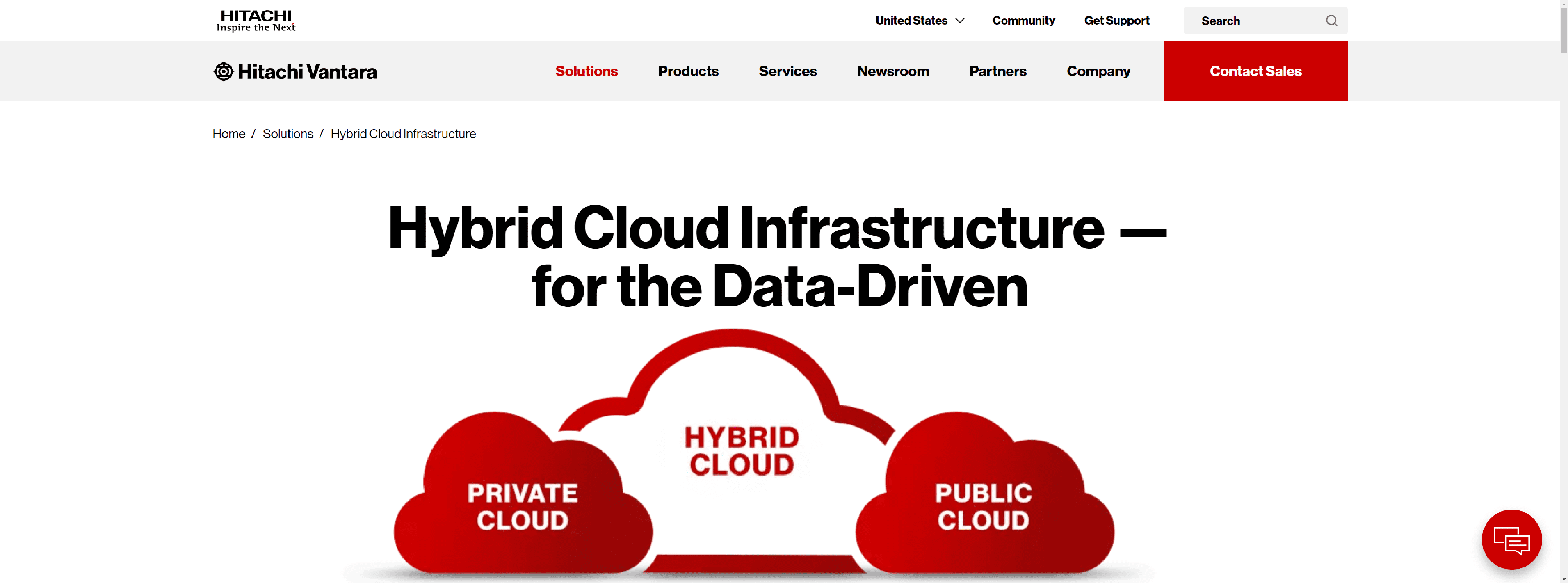
Hitachi Vantara – Hybrid cloud infrastructure for data-driven insights. Manage IT service levels not infrastructure with a central operating model across data centers, the edge, and public clouds.
- Enterprise Private Cloud Infrastructure
- Data Mobility for Cloud-Native Apps
- Cloud-Based Data Protection
- Everything as a Service With EverFlex
Selection Criteria For Choosing Hybrid Cloud Management Platform
- Integration and Compatibility: The platform should seamlessly integrate with existing on-premises infrastructure and cloud environments to ensure smooth and efficient management across all environments.
- Flexibility and Scalability: The platform should be able to scale up or down easily based on changing business needs, as well as support a variety of workloads and applications.
- Security and Compliance: The platform should have robust security features, encryption capabilities, and compliance certifications to protect sensitive data and ensure regulatory compliance.
- Automation and Orchestration: The platform should provide automation and orchestration capabilities to streamline processes, improve efficiency, and reduce manual workload management.
- Monitoring and Reporting: The platform should offer comprehensive monitoring and reporting tools to track performance, utilization, and costs across hybrid cloud environments.
- Cost and Efficiency: The platform should offer cost-effective pricing models and optimization features to help optimize cloud spending and resource allocation.
- Vendor Support and Service Level Agreements (SLAs): The platform should have strong vendor support, including prompt responses to issues and proactive monitoring, as well as clear SLAs to guarantee service availability and performance.
- Disaster Recovery and Backup: The platform should provide robust disaster recovery and backup capabilities to ensure data protection and business continuity in the event of a disaster or outage.
- User Experience and Ease of Use: The platform should have a simple and intuitive user interface, as well as provide training and support resources to help users quickly onboard and leverage its features effectively.
- Community and Ecosystem: The platform should have a strong community of users, partners, and third-party integrations to enable collaboration, innovation, and extensibility.
Most Common Questions Regarding Hybrid Cloud Management Platform
What is a hybrid cloud management platform?
A hybrid cloud management platform is a tool that enables organizations to manage and monitor their hybrid cloud environments, which consist of a combination of on-premises infrastructure and public or private cloud services.
What are the benefits of using a hybrid cloud management platform?
Some of the key benefits of using a hybrid cloud management platform include increased efficiency in managing cloud resources, improved visibility and control over hybrid cloud environments, enhanced security and compliance, simplified IT operations, and cost savings through better resource utilization.
What features should I look for in a hybrid cloud management platform?
When selecting a hybrid cloud management platform, it is important to look for features such as multi-cloud management capabilities, automation and orchestration tools, monitoring and analytics functions, security and compliance tools, cost management capabilities, and integration with other IT systems and tools.
How can a hybrid cloud management platform help with compliance and security?
A hybrid cloud management platform can help organizations achieve compliance with industry regulations and internal policies by providing tools for monitoring and enforcing security controls, managing access permissions, tracking compliance with regulatory requirements, and generating audit reports. Additionally, the platform can help improve security by identifying and remediating security vulnerabilities, implementing encryption and data protection measures, and ensuring that sensitive data is handled and stored securely.
How can a hybrid cloud management platform help with cost management?
A hybrid cloud management platform can help organizations optimize their cloud spend by providing tools for monitoring and analyzing cloud usage, identifying cost-saving opportunities, implementing cost control measures such as resource scaling and automation, and forecasting future cloud costs based on usage trends. By implementing cost management best practices, organizations can reduce their cloud expenses and maximize the value of their cloud investments.